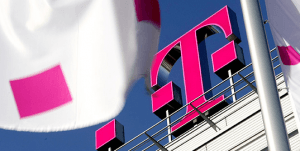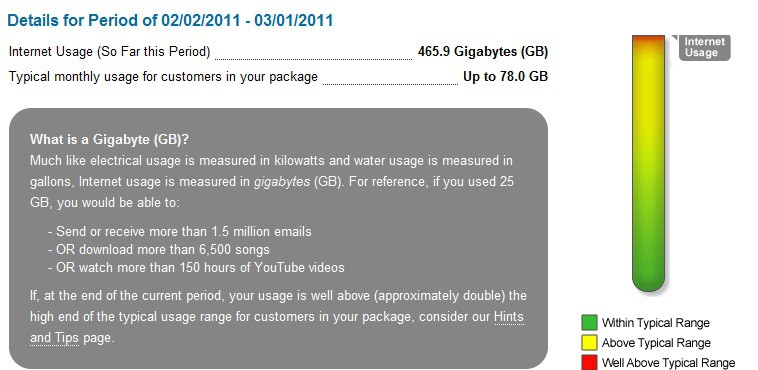 Although more than 30 million Americans have experienced getting bill shocked with a cell phone bill loaded with overlimit fees and penalties, a wireless industry group says 19 out of 20 of these customers are economically better off getting those high bills, and any plan to notify customers in advance when their usage limits are reached would “harm innovation, limit consumer choice, and impair the potential for competitive differentiation.”
Although more than 30 million Americans have experienced getting bill shocked with a cell phone bill loaded with overlimit fees and penalties, a wireless industry group says 19 out of 20 of these customers are economically better off getting those high bills, and any plan to notify customers in advance when their usage limits are reached would “harm innovation, limit consumer choice, and impair the potential for competitive differentiation.”
These incredible conclusions come in a filing from the Wireless Communications Association International, an industry group funded by AT&T, Sprint, Clearwire, and Time Warner Cable.
The WCAI just released a new white paper claiming Americans facing Internet Overcharging from usage-capped wireless data plans are actually saving money when carriers impose overlimit fees. Their reasoning for this new math? You might overpay for a usage plan that delivers a higher usage allowance than you need.
The wireless industry is heavily lobbying the Federal Communications Commission to stop the agency from imposing new rules to deal with the bill shock problem. The FCC favors an advance warning system, which would force providers to notify customers by e-mail or text message when they near their usage allowance. Letting customers know when they are about to pay enormous penalty usage rates before they are reflected on a future bill could save Americans millions annually.
The WCAI-funded study says consumers don’t need the agency’s help, going as far as to claim the majority of Americans are already well aware they are exceeding their plan limits, and are better off paying short-term penalties.
“The FCC is weighing new regulations that it says will eliminate so-called ‘bill shock,’ but this analysis makes plain that consumers don’t need regulators’ help,” WCAI President Fred Campbell said. “If you give them the right information, they know how to pick the best deal.”
But critics charge providers fighting this provision want to hide the most basic information of all — when consumers are on the verge of running up huge bills.
“The FCC’s effort on bill shock is long overdue in a wireless environment where today’s heavy user is tomorrow’s average user, and where the wireless Web is more and more important to commerce and to society,” Free Press Policy Counsel M. Chris Riley said. “It is vital that consumers are empowered with the information and the tools needed to make decisions about their own wireless usage so they can avoid outrageous charges.”
The WCAI white paper suggests that if providers are forced to issue advance warnings, companies may have to raise rates to compensate. The paper’s author suggests consumers would find that worse than just paying the bills with overlimit fees:
The Nielsen Study indicates that many consumers incurring overages do so willfully and repeatedly. Their behavior suggests it is unlikely that usage notifications or usage controls would change their behavior because they are either indifferent to the overage charges or have determined that the occasional overage charge is more economical for them than choosing a more expensive plan. Notwithstanding that these overage-incurring consumers may not want or need additional notifications or controls, the adoption of the FCC‘s regulatory proposals would impose on all consumers the financial burden of ―protecting this one small group.
The WCAI dismisses the huge number of complaints that arrive at the FCC each year over this issue as simply “opinions” from consumers, not nearly as credible as their own analysis of actual customer bills.
The paper even argues with the definition of ” bill shock,” suggesting that the nearly 7 percent of wireless customers who blow past their voice allowances only face an average penalty of around $18. That is “surprising or inconvenient; but it is unlikely to be shocking.”
The WCAI study admits the dollar amounts for data-usage bill shock can be considerably higher, sometimes $100 or more. The charges occur more frequently, too — impacting nearly 18 percent of customers. But the group dismisses it as a rare occurrence anyway and that carriers will issue credits for astronomical surprise bills. Besides, the paper concludes, when it was written most consumers were enrolled in increasingly-rare “unlimited use” plans. Since the raw data was collected largely before AT&T abandoned its flat rate data pricing in 2010, statistics regarding bill shock for AT&T’s new limited use plans were not available. The white paper inaccurately dismisses that major rate change, claiming it “had no impact on the data analyzed.” That leaves readers believing the rate changes made no difference.
But the group’s logic completely derails when it concludes there are “consumer benefits to overages.” Namely, providers “simplified” rate plans to reduce choice which was causing “customer confusion.” The paper concludes “there is substantial evidence that consumers make deliberate choices to incur overages rather than upgrading to a more expensive monthly rate plan, and that they overwhelmingly benefit from such choices.”
The white paper ignores several important factors:
- The diminishing number of unlimited access plans which give consumers a way to avoid overlimit fees, especially for data;
- Carriers themselves arbitrarily set the arbitrary rules for the playing field – calling plan allowances, data allowances, limits, overlimit fees and penalties, and roaming rates;
- The study ignores the record number of consumers complaining about surprising bills and the true economic impact providing simple text message or e-mailed notifications would have, and doesn’t give any reason why a consumer can’t simply shut off services once limits are reached, to prevent excess charges.
The white paper notes that 736,000 Americans annually are getting surprisingly high bills. Assuming they are an average of $20 higher than anticipated, that represents nearly $15 million dollars in extra revenue for carriers — ample reason to hire dollar-a-holler groups to produce nonsensical reports that conclude a system to notify consumers they are about to be one of those 736,000 customers is actually bad for them and their wallets.
The FCC’s Consumer Task Force recommends these strategies to avoid bill shock:
• Understand your calling pattern for making voice calls, and ask your carrier for a plan that would be best for your kind of use.
• If you are an infrequent phone user, consider a pre-paid plan. Because you “pre-pay” for all your minutes, these plans make it impossible to go over your set limit.
• Understand what your roaming charges are and where you will incur them.
• Understand your options for data and text plans.
• If you are going to use your mobile phone outside the U.S. for voice, email, and other services, make certain to find out beforehand what charges may apply. (Visit Wireless World Travel for more information about using a wireless phone in other countries.)
• Ask how your carrier can help you avoid bill shock – with phone or text alerts, by letting you monitor your account online, or by giving you other information.
• If you have tried to resolve a billing issue with your carrier and can not reach an acceptable resolution, complain to the FCC. You can call our Consumer Center, toll-free, at 1-888-CALL FCC (1-888-225-5322), or file a complaint here.
To learn more, read the FCC’s White Paper on Bill Shock.
[flv width=”640″ height=”380″]http://www.phillipdampier.com/video/FCC Bill Shock.flv[/flv]
The Federal Communications Commission discusses the problem of “bill shock.” (1 minute)


 Subscribe
Subscribe

















